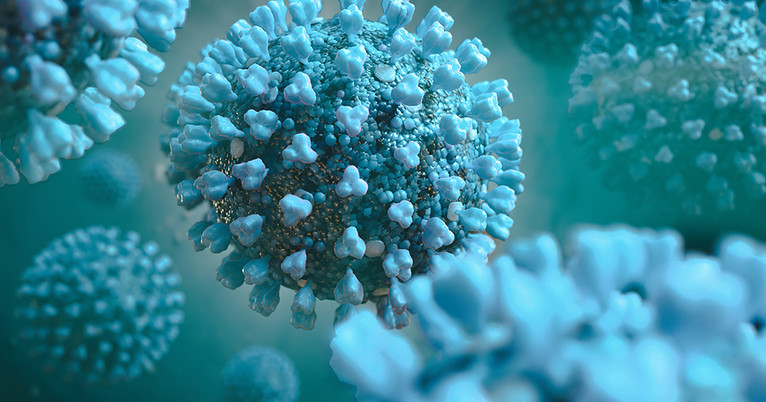
There are various health conditions and diseases that could affect many humans. Some of which are listed and explained extensively. See more of them below:
Anxiety disorders are common and treatable with individually tailored therapy and medication.
Alzheimer’s disease is the most common form of dementia, affecting 5.2 million Americans over the age of 65.
Arthritis and other rheumatic diseases are common conditions that cause pain, swelling, and limited movement.
Asthma is a chronic, inflammatory lung disease involving recurrent breathing problems.
The World Health Organization describes breastfeeding as the “best source of nourishment for infants and young children” and recommends babies breastfeed exclusively for the first six months.
Cancer is a disease in which some of the body’s cells grow uncontrollably and spread to other parts of the body.
Dementia is a general term impaired thinking, remembering or reasoning that can affect a person’s ability to function safely.
Diabetes, also called diabetes mellitus, is a condition that affects insulin, a hormone that breaks down sugars in the food you eat and converts them into glucose to fuel the body.
There are several kinds of eating disorders, including anorexia nervosa, bulimia nervosa, binge eating disorder and avoidant/restrictive food intake disorder.
End Stage Renal Disease (ESRD)
End-stage renal failure, also known as end-stage renal disease (ESRD), is the final, permanent stage of chronic kidney disease, where kidney function has declined to the point that the kidneys can no longer function on their own.
Epilepsy is a neurological condition involving the brain that makes people more susceptible to having recurrent seizures.
Fertility and Reproductive Health
Fertility is a person’s ability to conceive children. In general, when a woman is unable to get pregnant even after at least one year of unprotected sex, she is considered to have infertility and her doctor will begin evaluating the possible causes.
Older people are the largest group affected by hearing loss. The contributors range from excessive noise to drugs, viral or bacterial infections, head injury or head tumors, stroke and heredity.
A heart attack (myocardial infarction) happens when one or more areas of the heart muscle don’t get enough oxygen. This happens when blood flow to the heart muscle is blocked.
Hepatitis is a general term used to describe inflammation of the liver. Liver inflammation can be caused by several viruses (viral hepatitis), chemicals, drugs, alcohol, certain genetic disorders or by an overactive immune system that mistakenly attacks the liver, called autoimmune hepatitis.
Herpes infections are very common. Fifty to 80 percent of American adults have oral herpes (HSV-1), which causes cold sores or fever blisters in or around the mouth. Genital herpes, caused by HSV-1 or HSV-2, affects one out of every six people in the U.S. age 14 to 49. Genital herpes infections can be asymptomatic, or can show up as outbreaks of blisters or sores.
High Blood Pressure/Hypertension
Blood pressure is the force of the blood pushing against the artery walls. The force is generated with each heartbeat as blood is pumped from the heart into the blood vessels.
AIDS (acquired immunodeficiency syndrome) is caused by the human immunodeficiency virus (HIV). This kills or impairs cells of the immune system and progressively destroys the body’s ability to fight infections and certain cancers.
Human papillomavirus (HPV) is a term that refers to a large group of viruses that cause wartlike growths, called papillomas, or cancers.
The flu is caused by a virus. Viruses are generally passed from person to person through the air when an infected person sneezes or coughs.
Kidney stones are hard objects, made up of millions of tiny crystals. Most kidney stones form on the interior surface of the kidney, where urine leaves the kidney tissue and enters the urinary collecting system.
Leukemia is different from most other cancers. Leukemia is cancer that starts in the bone marrow. The bone marrow is where new blood cells are made. Leukemia cells are early forms of blood cells. They are usually white blood cells.
Obesity is a health condition resulting from excess body fat. Overweight means having more than the recommended body weight according to one’s height. Being overweight or obese is one of the leading preventable causes of death in the U.S.
More than one million people in the United States are living with the neurodegenerative ravages of Parkinson’s disease.
STDs are infectious diseases passed from person to person through sexual contact.
Staying Healthy During Pregnancy
Discovering that you’re pregnant is an exciting and joyous time, filled with planning and anticipation for your baby’s future.
A stroke, or brain attack, happens when blood flow to your brain is stopped. It is an emergency situation.
Lupus, an autoimmune disorder, can cause inflammation throughout your body, including in your joints, skin, blood vessels and organs, such as the kidneys.
Urinary tract infections or UTIs are infections in any part of the urinary tract. They are a common health problem that affects millions of people each year. Women are especially prone to UTIs.
